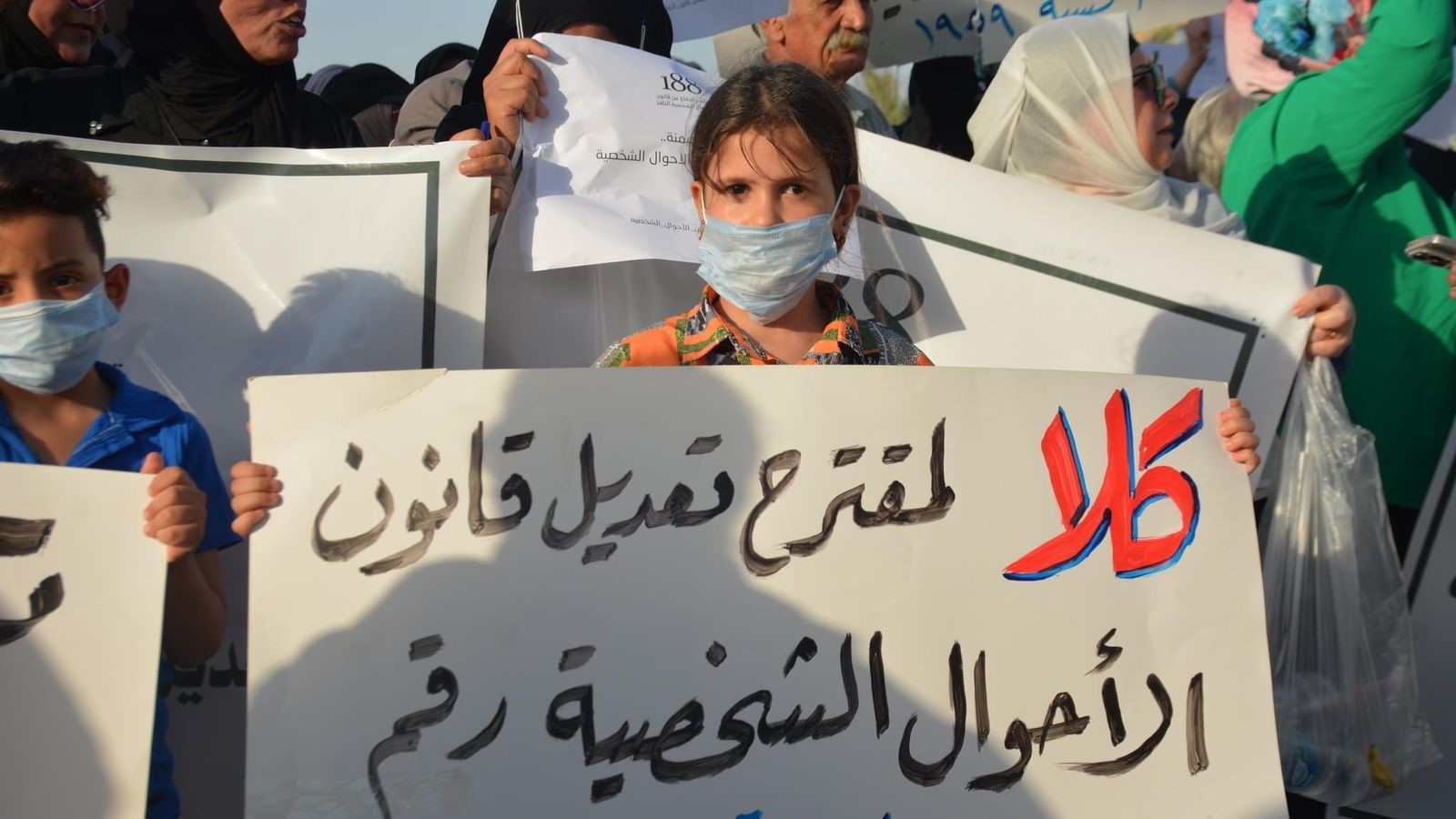Controversy Over Iraq’s Personal Status Law Continue Sparking Debate on Child Custody and Women’s Rights
Amendment Threatens Mothers’ Custody Rights, Women’s Inheritance, and the Stability of Iraqi Families

ERBIL (Kurdistan24) — The recent enforcement of Iraq’s "Jaafari personal status law", which automatically grants custody of children to fathers after divorce, continues to spark significant social tension across Baghdad and other Iraqi governorates.
The law has particularly affected women whose marriages have ended, prompting many to leave their hometowns in search of safer environments to protect their children.
Following the parliamentary approval of the Jaafari law earlier this year, a wave of concern emerged among women, who fear losing custody of their children.
One such case involves Esra, a mother who traveled to Erbil to ensure her five children remain under her care. She told Kurdistan24, “I am both a mother and father to my children. I provide their education, daily needs, and protection.
"Under the personal status law, no mother can retain custody of her children," she said. "I came to Erbil to safeguard them; I know they will be safe here, and my expenses are minimal.”
Esra’s situation reflects a growing trend of women relocating from Baghdad and other Iraqi provinces to the Kurdistan Region to shield their children from being handed over to fathers under the law.
Activists argue that these relocations underscore systemic injustices and gaps in Iraq’s legal framework.
Human rights advocates have criticized the law for disproportionately disadvantaging women. Lina Ali, an activist, commented, “It is truly shameful for the government. We live in 2025, where the world respects women and grants them rights, yet in Iraq, women are pressured because a mother may face legal action or even arrest simply for keeping her child. The law itself punishes women.”
Since the Jaafari law’s passage, its implementation has sparked widespread debate in courts and among the public. Legal practitioners note that the law remains one of the most controversial pieces of legislation in Iraq, with disputes over its interpretation and enforcement causing tension not only between parents but also within the judiciary itself.
Women’s rights organizations warn that, unless reforms are introduced, thousands of mothers across Iraq will continue to face legal and social barriers when trying to retain custody of their children, often forcing them to leave their homes and seek protection elsewhere.
Iraq’s amended Personal Status Law, which allows citizens to follow the Ja‘fari school of thought in matters of marriage, divorce, and inheritance, is being widely condemned as a catastrophic step backward, threatening to legalize child marriage, strip mothers of custody rights, and destabilize Iraqi families.
The amendment, passed on February 17, 2025, after a seven-year-long struggle by its opponents, has been described as a source of “great injustice against women.”
Legal experts warn that it dismantles the unified Personal Status Law No. 188 of 1959—a cornerstone of Iraq’s modern civil state, which synthesized elements from multiple Islamic schools of thought to create a single legal framework for all Iraqis. The 1959 law, which does not apply in the Kurdistan Region, was designed to safeguard civil protections for women and children.
Previously, Legal expert Bestun Mirani told Kurdistan24 that allowing individuals to choose their governing sect for family matters “creates many problems for the court and society” and could lead to “societal chaos.”
Under Ja‘fari jurisprudence, Mirani explained, custody of children at any age is automatically granted to fathers, a radical departure from civil protections that often prioritize mothers. Inheritance rights for women are also drastically curtailed, potentially leaving widows destitute.
The human impact of the law is already visible. Before its passage, protests erupted across Baghdad and other Iraqi governorates. Activist Shahd Ameri recounted that her ex-husband, emboldened by the changes, sought custody of their children to evade child support payments.
Another protester, Jamila Izzat, described a more tragic outcome: her ex-husband forcibly took her children and married off her teenage daughter. “This law has destroyed the lives of Iraqi mothers and children,” she said, a statement that has become a rallying cry for opposition groups.
Women across Iraq have sought refuge in the Kurdistan Region to protect their children from being taken under the new law. Mothers like Esra, who relocated to Erbil with her five children, highlight the profound social consequences, stating that she had to leave home to ensure her children’s safety while continuing to provide for them.
The international community has expressed serious concerns over the amendment. The United Nations in Iraq urged lawmakers to ensure reforms comply with international human rights obligations, particularly regarding women and children.
With the law now in effect, the battle for the rights and futures of Iraq’s most vulnerable citizens has entered a new and alarming phase.
The debate surrounding the Jaafari law has brought renewed attention to Iraq’s need for a modernized personal status framework that balances the rights of both parents while prioritizing the welfare of children.
Activists urge lawmakers to amend the law to prevent further displacement and hardship for women and families.
Saif Ali, Kurdistan24 correspondent in Baghdad, contributed to this report.